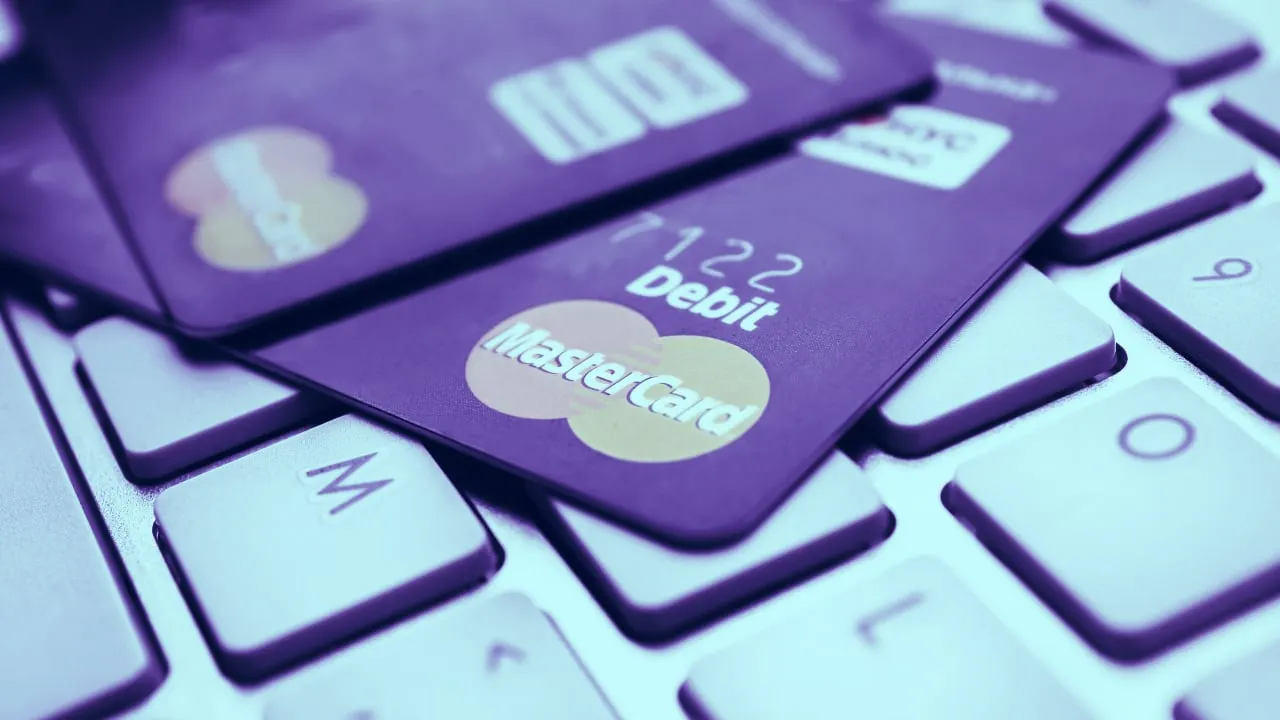In brief
- Mastercard will allow customer-to-merchant payments in cryptocurrency this year without the need to settle in fiat.
- The announcement makes clear that Mastercard is interested in integrating stablecoins rather than assets like Bitcoin.
- Visa has also mulled running cryptocurrencies on its network.
Mastercard, a key player in the world of traditional payments, is getting into cryptocurrency.
In a blog post today, the credit card company announced that it will "start supporting select cryptocurrencies directly on our network" in 2021.
Though Mastercard already works with cryptocurrency payment companies Wirex and BitPay on crypto debit cards, today's news represents a shift to allowing cryptocurrencies to move within the actual network.
"Our crypto partners convert the digital assets on their end to traditional currencies, then transmit them through to the Mastercard network," the blog post explains. "Our change to supporting digital assets directly will allow many more merchants to accept crypto—an ability that’s currently limited by proprietary methods unique to each digital asset. This change will also cut out inefficiencies, letting both consumers and merchants avoid having to convert back and forth between crypto and traditional to make purchases."
But which cryptocurrencies? The announcement is cagey on that point, noting that it's looking for "crypto assets that offer reliability and security." Namely, stablecoins—cryptocurrencies designed to hold their value relative to an asset such as the US dollar so that they can be used for payments.
According to Mastercard, its criteria for integrating cryptocurrency payments boil down to consumer protection, rigid regulatory and compliance measures such as KYC, and—crucially—a popular desire to use the cryptocurrency rather than merely invest it. It is a payments platform, after all, designed to take a percentage of every transaction.
Mastercard has previously shown interest in stable cryptocurrencies. In September, it launched a platform for central banks to test their own digital currencies, known as CBDCs.
All eyes have been on Bitcoin this week, as the world's largest cryptocurrency by market cap hit an all-time high after electric car maker Tesla purchased $1.5 billion of the asset. But use of stablecoins such as Tether and USDC has surged as retail and institutional investors ramp up their holdings and get ready to move funds.
Tether today reached a circulating supply of 30 billion USDT; there's about 25% more than there was last month. It's a similar story for USDC, the second-most-popular stablecoin; it's gone from a market cap of $4.7 billion to $6.7 billion in the last 30 days.
Late last month, the CEO of Mastercard rival Visa, Al Kelly said on a Q1 earnings call that his company was contemplating adding crypto to its network, though he did not make any commitments.
“To the extent a specific digital currency becomes a recognized means of exchange, there's no reason why we cannot add it to our network, which already supports over 160 currencies today,” Kelly said.
Looks like Mastercard has beaten Visa to it.

